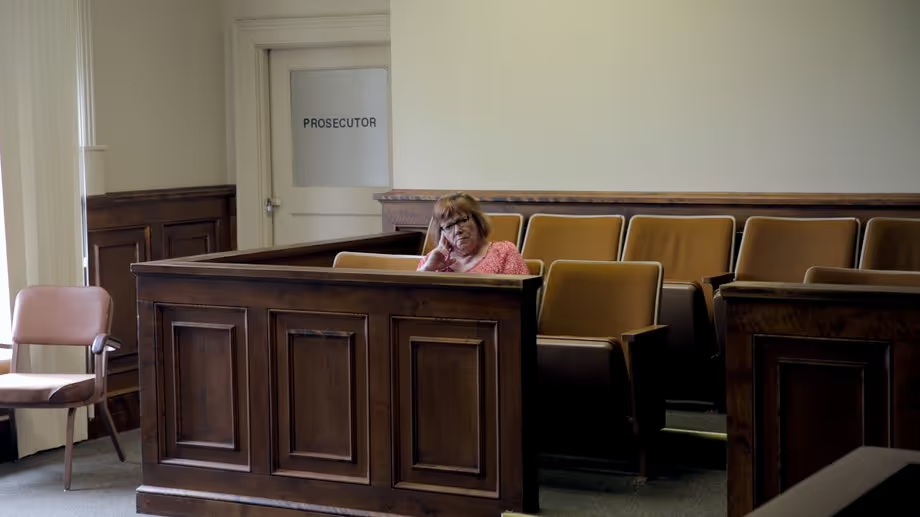Lindy Lou, Juror Number Two: Delve Deeper Reading List
Adult Nonfiction

Prejean, Helen. Dead Man Walking: An Eyewitness Account of the Death Penalty in the United States. Penguin Random House, 1993.
In 1982, Sister Helen Prejean became the spiritual advisor to Patrick Sonnier, the convicted killer of two teenagers who was sentenced to die in the electric chair of Louisiana’s Angola State Prison. In the months before Sonnier’s death, the Roman Catholic nun came to know a man who was as terrified as he had once been terrifying. She also came to know the families of the victims and the men whose job it was to execute—men who often harbored doubts about the rightness of what they were doing. Out of that dreadful intimacy comes a profoundly moving spiritual journey through our system of capital punishment. Here Sister Helen confronts both the plight of the condemned and the rage of the bereaved, the fears of a society shattered by violence and the Christian imperative of love.
Elliott, Martha. The Man in the Monster: An Intimate Portrait of a Serial Killer. Penguin Random House, 2015.
Michael Ross was a serial killer who raped and murdered eight young women between 1981 and 1984. In 2005, the state of Connecticut put him to death by lethal injection. His crimes were horrific, and he paid the ultimate price for them. When journalist Martha Elliott first heard of Ross, she learned what the world knew of him—that he had been a master at hiding in plain sight. Elliott, a staunch critic of the death penalty, was drawn to the case when the Connecticut Supreme Court overturned Ross’s six death sentences. Rather than fight for his life, Ross requested that he be executed because he didn’t want the families of his victims to suffer through a new trial. Elliott was intrigued and sought an interview. The two began a weekly conversation—and developed an odd form of friendship—that lasted over a decade, until Ross’s last moments of life.
Claiborne, Shane. Executing Grace: How the Death Penalty Killed Jesus and Why It’s Killing Us. HarperOne, 2016.
A southern evangelical Christian draws on Scripture and statistics to argue against the death penalty. To illustrate his changing views on capital punishment, he compares the principles of restorative and punitive justice. What does the Bible have to say about sin, revenge and absolution? Claiborne, a popular speaker and champion of the new monastic movement, offers an impassioned argument against capital punishment rooted in his Christian faith.
Hammel, Andrew. Ending the Death Penalty: The European Experience in Global Perspective. Palgrave Macmillan, 2010.
Examining the successful movements to abolish capital punishment in the UK, France, and Germany, this book examines the similarities in the social structure and political strategies of abolition movements in all three countries. An in-depth comparative analysis with other countries assesses chances of success of abolition elsewhere.
Blecker, Robert. The Death of Punishment: Searching for Justice Among the Worst of the Worst. Palgrave Macmillan, 2013.
The Death of Punishment challenges the reader to refine deeply held beliefs on life and death as punishment that flare up with every news story of a heinous crime. It argues that society must redesign life and death in prison to make the punishment more nearly fit the crime. It closes with the final irony: If we make prison the punishment it should be, we may well abolish the very death penalty justice now requires.

